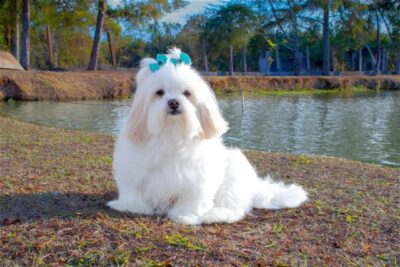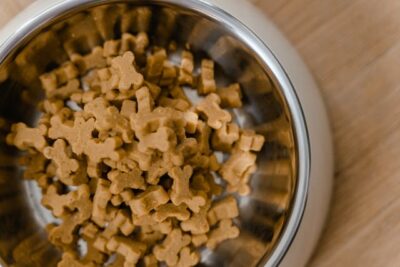Overview
Introduction: Lhasa Apso vs Shih Tzu

Lhasa Apsos and Shih Tzus are two beloved dog breeds that have captured the hearts of many. Known for their adorable looks and charming personalities, these breeds are often confused due to their similar appearances.
In this article, we will delve into the key differences and similarities between Lhasa Apsos and Shih Tzus, helping you make an informed decision if you’re considering adding one of these furry friends to your family.
Explore the nuances of Lhasa Apso vs Shih Tzu to better understand which breed might be the perfect fit for your lifestyle and preferences.
Brief Overview of Lhasa Apso and Shih Tzu Breeds
Lhasa Apsos and Shih Tzus are both small dog breeds that originated in Tibet. Lhasa Apsos are believed to be ancient breeds that were kept as watchdogs in monasteries, making them good guard dogs, while Shih Tzus were bred to be companions for Chinese royalty.
Both breeds are known for their long, flowing coats and affectionate nature. Learn more about the differences and similarities between Lhasa Apso vs Shih Tzu to determine which breed may be the best fit for you.

Mention of Their Popularity and Similarities
When comparing the Lhasa Apso vs Shih Tzu, both breeds are popular choices for companion dogs known for their long, flowing coats and affectionate nature. The Shih Tzu is perhaps slightly more popular than the Lhasa Apso, but both breeds have a dedicated following.
They share similarities in their appearance, including their small size, sturdy build, and distinctive facial features. Additionally, both breeds have a long history as royal companions in their native Tibet.
Purpose of the Comparison
The purpose of comparing the Lhasa Apso vs Shih Tzu is to help potential dog owners understand the differences and similarities between these two breeds. By comparing their characteristics, temperament, grooming needs, and health concerns, individuals can make an informed decision about which breed is the best fit for their lifestyle and preferences.
Additionally, understanding the history and background of each breed can provide insight into their behavior and suitability as family pets.

Origin and History: Lhasa Apso vs Shih Tzu
Lhasa Apso Breed History and Origins
The Lhasa Apso is an ancient breed with a rich history dating back to Tibet, where they were bred as guard dogs in Tibetan monasteries and homes. Highly valued for their alertness and keen senses, Lhasa Apso dogs were considered sacred and were never sold but only given as gifts.
The breed’s name is derived from the sacred city of Lhasa, and they are believed to have been bred by Tibetan monks over 2,000 years ago. The American Kennel Club recognized the Lhasa Apso in 1935, and today they are cherished for their loyalty and affectionate nature.
Shih Tzu Breed Origins and History
The Shih Tzu, known as the “Lion Dog,” has a fascinating history dating back to ancient China’s Ming Dynasty. Bred as companion dogs for Chinese emperors, they were highly prized for their lion-like appearance and loyal nature. The breed’s name translates to “lion” in Mandarin, reflecting its regal and dignified presence. The American Kennel Club recognized the Shih Tzu in 1969, and today, they are cherished for their affectionate demeanor and elegant looks.

Evolution of Both Breeds Over Time
Both the Shih Tzu and Lhasa Apso have evolved over time from their origins in Tibet, where they were revered as companion dogs in Buddhist monasteries. The Lhasa Apso, in particular, was known for its role as a watchdog, guarding Buddhist monasteries and temples.
The Shih Tzu, on the other hand, was bred as a companion and lap dog, favored by Chinese royalty and even the Dalai Lama. Despite their different roles in history, both breeds have maintained their loyal and affectionate nature, making them cherished companions today.
Physical Characteristics: Shih Tzu vs Lhasa Apso
Size and Weight Comparison
Shih Tzus and Lhasa Apsos are both small breeds, but there are differences in their size and weight. On average, a Shih Tzu weighs between 9 to 16 pounds, while a Lhasa Apso weighs between 12 to 18 pounds. Additionally, Shih Tzus tend to be slightly smaller in size, standing about 8 to 11 inches tall at the shoulder, compared to Lhasa Apsos, which are slightly larger, standing about 10 to 11 inches tall.

Coat Types, Colors, and Grooming Needs
Shih Tzus and Lhasa Apsos are both long haired dogs that boast long coats, but their textures and grooming needs differ. The Shih Tzu sports a luxurious double coat that’s dense and flowing, while the Lhasa Apso flaunts a profuse double-layered coat.
Shih Tzu’s coat come in a variety of colors, including solid, multi-colored, and parti-colored, whereas Lhasa Apsos are typically seen in solid colors. Both breeds require regular grooming to maintain their lavish coats, including daily brushing to prevent matting and regular baths.
Facial Features and Distinctive Characteristics
Shih Tzus and Lhasa Apsos have distinct facial features that set them apart. Shih Tzus are known for their flat faces, round eyes, and a short muzzle, giving them a sweet and innocent expression. In contrast, Lhasa Apsos have a more pronounced muzzle and longer facial hair, which often forms a beard and mustache, giving them a dignified and unique appearance.
Additionally, both breeds have long, floppy ears that frame their faces, adding to their adorable and charming look.

Temperament and Personality Traits: Lhasa Apso vs Shih Tzu
Lhasa Apso’s Temperament Traits
Lhasa Apsos are known for their loyal and alert nature, but they can also have a stubborn streak. They are independent dogs that are devoted to their families but may be wary of strangers. With proper training and socialization, Lhasa Apsos can be loving and well-behaved companions.
Shih Tzu’s Temperament Traits
Shih Tzus are known for their affectionate and outgoing nature. They are friendly dogs that get along well with people and other pets. Shih Tzus are also known to be playful and lively, making them great companions for families and individuals alike.
Comparison of Behavioral Patterns and Adaptability
When comparing the behavioral patterns and adaptability of Shih Tzus vs Lhasa Apsos, both small dog breeds have distinct characteristics. Shih Tzus are known for their affectionate and outgoing nature, while Lhasa Apsos are loyal and alert with a potential stubborn streak.
Shih Tzus may be more adaptable to different environments and lifestyles, whereas Lhasa Apsos may be more prone to separation anxiety due to their loyal nature. These personality differences make each breed unique, appealing to different types of owners.

Exercise and Activity Requirements: Shih Tzu vs Lhasa Apso
Lhasa Apso’s Exercise Needs
Lhasa Apsos have a moderate energy level and do not require intense exercise. A daily walk or playtime in a fenced yard is usually sufficient to meet their exercise needs.
They enjoy mental stimulation as well, so interactive toys or short training sessions can help keep them mentally sharp and engaged.
Shih Tzu’s Exercise Needs
Shih Tzus have moderate exercise needs and enjoy daily walks or playtime. They are not high-energy dogs but still benefit from regular activity to maintain their health and well-being. Providing them with opportunities for moderate exercise helps prevent obesity and promotes overall fitness.
Suitable Activities for Both Breeds
Shih Tzu and Lhasa Apso both enjoy activities that provide mental stimulation and moderate exercise. Suitable activities for both breeds include daily walks, interactive play sessions, and obedience training.
Both breeds also enjoy spending time with their families and can be content with indoor activities, such as playing with toys or learning new tricks.

Training and Intelligence: Shih Tzu vs Lhasa Apso
Lhasa Apso’s Trainability and Intelligence
Lhasa Apsos are intelligent dogs but can have a stubborn streak, which can sometimes make training a bit challenging. They respond best to positive reinforcement training methods and consistency.
With patience and a firm but gentle approach, Lhasa Apsos can learn commands and tricks, showcasing their intelligence.
Shih Tzu’s Trainability and Intelligence
Shih Tzus are intelligent dogs with a willingness to please, making them relatively easy to train. They respond well to positive reinforcement and gentle, consistent training methods. With their intelligence and eagerness to learn, Shih Tzus can quickly pick up commands and tricks.
Effective Training Methods for Both Breeds
When comparing Shih Tzu and Lhasa Apso, both breeds respond well to positive reinforcement techniques in training. While Shih Tzus are known for their eager-to-please nature and often find training relatively easy, Lhasa Apsos can be more independent and may require more patience and consistency.
However, both breeds can learn commands and behaviors effectively with the right approach, showcasing their intelligence and adaptability compared to other dog breeds.

Health and Lifespan: Lhasa Apso vs Shih Tzu
Common Health Issues in Lhasa Apsos
Common health issues in Lhasa Apsos include renal dysplasia, a condition affecting the kidneys, dental issues due to their small mouths and crowded teeth, progressive retinal atrophy, which can lead to vision loss, and cherry eye, a condition where the gland in the third eyelid protrudes.
Regular veterinary check-ups and proactive dental care are essential for managing these health problems in Lhasa Apsos.
Common Health Issues in Shih Tzus
Shih Tzus are also prone to certain health issues, including hip dysplasia, patellar luxation, eye problems, and cherry eye, a condition where the gland in the third eyelid protrudes. Common health issues in Shih Tzus also include ear infections, which can occur due to their floppy ears that can trap moisture and debris. Regular ear cleaning and maintenance are important to prevent infections.
Additionally, Shih Tzus are prone to dental issues and may require dental care to maintain oral health.
Lifespan Comparison and Factors Affecting Longevity
Shih Tzus generally have a slightly longer lifespan compared to Lhasa Apsos, with an average lifespan of 10 to 18 years, while Lhasa Apsos typically live around 12 to 15 years. Factors affecting longevity in both breeds include genetics, diet, exercise, and overall health care.
Providing a balanced diet, regular exercise, and routine veterinary check-ups can help ensure a long and healthy life for both Shih Tzus and Lhasa Apsos, keeping them healthy dogs.

Diet and Nutrition: Lhasa Apso vs Shih Tzu
Recommended Diet for Lhasa Apsos
Recommended diet for Lhasa Apsos should include high-quality dog food that is appropriate for their age, size, and activity level. A balanced diet rich in protein, fats, vitamins, and minerals is essential for their overall health. It’s important to monitor their food intake to prevent overfeeding, as Lhasa Apsos can be prone to obesity.
Recommended Diet for Shih Tzus
Recommended diet for Shih Tzus should include high-quality dog food that is suitable for their age, size, and activity level. They may benefit from food specifically formulated for small breeds to meet their nutritional needs. It’s important to monitor their food intake to prevent overfeeding, as Shih Tzus can be prone to obesity.
Nutritional Requirements and Dietary Considerations
Shih Tzu and Lhasa Apso have similar nutritional requirements due to their small size and relatively low energy levels. Both breeds benefit from high-quality dog food that is appropriate for their age, size, and activity level. It’s important to monitor their weight and adjust their diet as needed to prevent obesity, which is a common issue in these breeds.

Living Arrangements and Suitability: Lhasa Apso vs Shih Tzu
Ideal Living Environments for Lhasa Apsos
Ideal living environments for Lhasa Apsos include homes where they can be indoors with their families, as they are small dogs that thrive on companionship.
They generally do well in households with or without other dogs, but early socialization is important to ensure they are comfortable around other pets. A secure outdoor area for them to play and explore is also beneficial for their overall well-being.
Ideal Living Environments for Shih Tzus
Ideal living environments for Shih Tzus include homes where they can be indoors with their families, as they are small dogs that thrive on companionship. They generally do well in households with or without other dogs, but early socialization is important to ensure they are comfortable around other pets. Shih Tzus can also thrive in environments with two dogs, as they enjoy the company of other dogs.
Suitability for Families, Singles, and Seniors
Both Shih Tzus and Lhasa Apsos are suitable for families, singles, and seniors, but there are some considerations. Shih Tzus may be more adaptable to different living situations and may be better suited for families with children, singles, or seniors looking for a companion.
Lhasa Apsos, on the other hand, can also be a wonderful family pet for families, singles, and seniors but may require more attention to proper socialization, especially if living with other dogs.

Socialization and Compatibility: Lhasa Apso vs Shih Tzu
Lhasa Apso’s Social Nature and Interaction with Other Pets
Lhasa Apsos are known for their independent and sometimes aloof nature, but they can also be affectionate and loyal to their pet owners.
Proper socialization from an early age is important to ensure they get along well with other pets in the household. With proper training and socialization, Lhasa Apsos can coexist peacefully with other pets.
Shih Tzu’s Social Nature and Compatibility with Children
Shih Tzus are known for their friendly and affectionate nature, making them generally good companions for children, including small children.
However, they are small dogs and may not tolerate rough handling, so supervision is important when children and dogs interact. Proper socialization from an early age can help ensure that Shih Tzus get along well with children and other pets, including two dogs.
Strategies for Socializing Both Breeds
Socializing both Shih Tzus and Lhasa Apsos should start early and involve exposure to various people, animals, and environments. Positive experiences during socialization can help both breeds develop confidence and good behavior.
Consistent training, rewards for good behavior, and patience are key strategies for socializing both Shih Tzus and Lhasa Apsos.

Costs and Expenses: Lhasa Apso vs Shih Tzu
Initial Cost of Purchasing a Lhasa Apso
The initial cost of purchasing a Lhasa Apso can vary depending on factors such as the breeder’s reputation, the dog’s lineage, and the region. On average, you can expect to pay anywhere from $500 to $2,000 for a Lhasa Apso puppy.
It’s important to choose a reputable breeder to ensure you are getting a healthy and well-bred puppy.
Initial Cost of Purchasing a Shih Tzu
The cost of purchasing a Shih Tzu puppy can vary based on factors such as the breeder’s reputation, the dog’s lineage, and the region. On average, you can expect to pay between $500 and $3,000. Selecting a reputable breeder is crucial to ensure the puppy is healthy and comes from a good lineage.
Ongoing Expenses and Maintenance Costs
Ongoing expenses and maintenance costs for both Shih Tzus and Lhasa Apsos include regular grooming, veterinary care, food, and accessories. These costs can vary depending on the individual dog’s health and needs, but owners should budget for expenses such as grooming appointments, annual vaccinations, and high-quality dog food.
Additionally, both breeds may require occasional professional grooming to maintain their coats, which can add to the overall cost of ownership.

Grooming and Maintenance: Lhasa Apso vs Shih Tzu
Grooming Needs of Lhasa Apsos
Lhasa Apsos have a long, flowing coat that requires regular grooming to prevent matting and tangles. Daily brushing is recommended to keep their coat in good condition and to minimize shedding.
Additionally, regular baths and occasional trims may be necessary to maintain their appearance and hygiene.
Grooming Needs of Shih Tzus
Shih Tzus have a long, luxurious double coat that requires regular grooming to prevent matting and tangling. Daily brushing is recommended to keep their coat in good condition and to minimize shedding. Regular baths and occasional trims are also necessary to maintain their appearance and hygiene.
Comparison of Grooming Efforts and Time Required
Both Shih Tzus and Lhasa Apsos have profuse coats that require regular grooming, but there are some differences in the time and effort required. Shih Tzus have a lavish double coat that needs daily brushing to prevent matting and tangling, while Lhasa Apsos have a luxurious coat that also requires daily grooming.
Additionally, both breeds may need occasional professional grooming to maintain their coats, making grooming a significant aspect of care for both breeds.

Travel and Outdoor Adventures: Lhasa Apso vs Shih Tzu
Travel considerations for Lhasa Apsos
When traveling with Lhasa Apsos, it’s important to consider their small size and sensitive nature. They may require extra care and attention during travel to ensure their comfort and safety.
Additionally, Lhasa Apsos may be prone to motion sickness, so it’s advisable to consult with a veterinarian before traveling to discuss any necessary precautions or medications.
Travel considerations for Shih Tzus
When traveling with Shih Tzus, it’s important to consider their small size and brachycephalic (flat-faced) features. They may be more prone to respiratory issues and overheating, so it’s essential to provide adequate ventilation and avoid extreme temperatures.
Additionally, Shih Tzus may benefit from frequent breaks and short walks during travel to stretch their legs and relieve themselves.
Safety precautions for outdoor activities
When engaging in outdoor activities, both Shih Tzus and Lhasa Apsos, with their profuse coats, require special attention to prevent overheating. It’s important to provide them with plenty of water and shade, especially in hot weather, and to avoid strenuous activities during peak temperatures.
Regular breaks and monitoring for signs of overheating, such as excessive panting or lethargy, are essential to ensure their safety during outdoor excursions.

Conclusion: Lhasa Apso vs Shih Tzu
In conclusion, both Lhasa Apsos and Shih Tzus are delightful breeds with unique characteristics and histories. While they share similarities in size, coat type, and affectionate nature, they also have distinct differences in temperament, grooming needs, and health concerns.
Understanding these differences can help potential owners choose the right breed for their lifestyle and preferences. Whether you’re drawn to the regal history of the Lhasa Apso or the playful charm of the Shih Tzu, both breeds have a lot to offer as loving companions.
Explore the nuances of Lhasa Apso vs Shih Tzu to make an informed decision and find the perfect furry friend for your home. If you’re interested in Shih Tzu puppies for sale in Florida and surrounding areas, visit our website. Our puppies are thoughtfully bred from reputable breeders.
Frequently Asked Questions (FAQs): Lhasa Apso vs Shih Tzu
- What are the main differences between Shih Tzu and Lhasa Apso?
- Shih Tzus and Lhasa Apsos differ in their origins and purposes. Shih Tzus were bred as companion dogs for Chinese royalty, while Lhasa Apsos were used as watchdogs in Tibetan monasteries. They also differ in size, with Shih Tzus being slightly smaller on average.
- Are Shih Tzus or Lhasa Apsos better suited for apartment living?
- Both breeds can adapt well to apartment living due to their small size, but Shih Tzus may be slightly more adaptable due to their lower energy levels. However, both breeds require regular exercise and mental stimulation, regardless of living space.
- How do I manage the profuse coat of a Shih Tzu and Lhasa Apso?
- Both breeds have long, flowing coats that require regular grooming. Daily brushing is recommended to prevent matting and tangling. Professional grooming may also be necessary to maintain their coats’ health and appearance.
- Are Shih Tzus or Lhasa Apsos good for families with children?
- Both breeds can be good family pets, but they may not tolerate rough handling from young children. Proper socialization and supervision are important when introducing them to children to ensure positive interactions.
- Do Shih Tzu or Lhasa Apso have any specific health concerns?
- Both breeds are prone to certain health issues, such as dental problems and eye issues. Regular veterinary check-ups and proper dental care are essential for maintaining their health.
- Which breed, Shih Tzu or Lhasa Apso, is more suitable for first-time dog owners?
- Both breeds can be suitable for first-time dog owners, but Shih Tzus may be slightly easier to train due to their eager-to-please nature. However, both breeds require consistent training and socialization to thrive.




